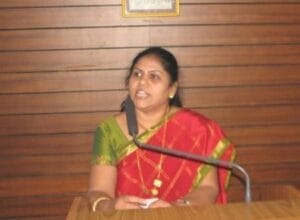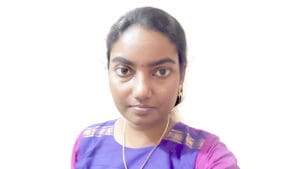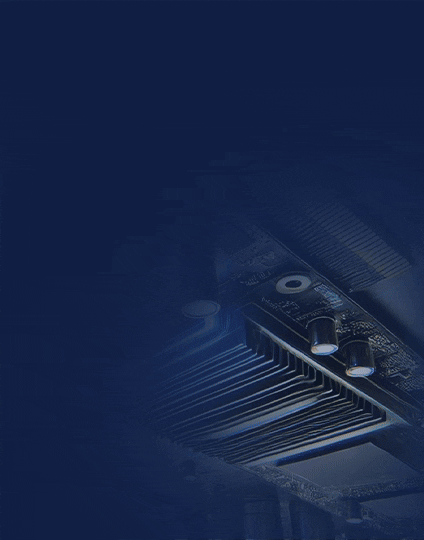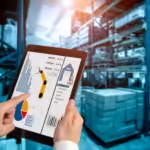Explore Reshma’s journey as a female DevOps Engineer. Uncover challenges, advice for women in engineering, and insights on her evolving career in this dynamic field.
Women In Engineering with Reshma
FPGA Insights has conducted an exclusive interview with Reshma, who is working as a Senior DevOps Engineer, to gain valuable insights into her experiences as a woman in engineering.
What’s your Name, job title & area of research/work?
Name – Reshma Ulvekar
Job Title – Senior DevOps Engineer
Area of research/work – Infrastructure as Code (IaC) & Automation
What sparked your interest in engineering? Can you describe the moment you realized this was a field you’d like to pursue?
I loved the idea of building not just software, but the entire environment it runs in, scalable, repeatable, and secure.
What are your experiences of being a female engineer?
Being a female engineer has been both a rewarding and challenging journey. On the one hand, I’ve had the opportunity to work on complex, impactful projects and contribute meaningfully to high-performing teams. But on the other hand, I’ve often found myself as one of the few—or only—women in the room. That can be isolating at times, but it has also pushed me to build confidence, advocate for myself, and support others in similar situations.
Can you tell me more about your career path so far?
I began my journey as a Software Engineer at one of the top IT firms, where I was assigned to a project in the banking domain. As a fresher, everything was new to me—the corporate environment, how teams operate, and the roles and responsibilities at different levels. It was a steep learning curve, but I embraced it as a challenge.
I took small but consistent steps to learn both the functional aspects of the domain and the non-functional areas.
What has been your most challenging experience as an engineer?
One of my most challenging experience as engineer was leading solution to build Devops framework for off host based solution (Mainframe). The biggest challenge was not just the technical complexity, but aligning stakeholders and managing risk. We had to rethink our CI/CD pipeline, set up secure service-to-service communication, and create detailed rollback strategies. I faced moments of high pressure, especially during deployment windows, but it taught me a lot about planning, communication, and staying calm under pressure.
Looking back, that experience significantly boosted my confidence and deepened my understanding of both technical and operational challenges. It reminded me that engineering isn’t just about solving problems with code—it’s also about navigating people, processes, and business constraints.
What is the most exciting thing about your job?
I enjoy that the field of engineering pushes me to keep learning and adapting. New tools, new approaches, and new challenges come up regularly, which keeps the work dynamic and engaging. It never feels repetitive—there’s always a new problem to solve or a better way to do things.
What kind of impact would bring you great satisfaction in your work?
The kind of impact that brings me the most satisfaction is knowing that my work enables others to work more efficiently and confidently. Whether it’s building a tool that saves time, improving a system’s reliability, or helping streamline a process, I find it incredibly rewarding when my contributions make a clear, positive difference for a team or end-user.
What do you think needs to be done to improve the statistics in terms of women’s participation in engineering?
Improving women’s participation in engineering requires a multi-layered approach that begins early and continues through every stage of a woman’s career. First, we need to create more awareness and encouragement at the school level, helping young girls see engineering as an exciting and achievable path. Exposure to female role models and hands-on STEM activities can make a huge difference in shaping their aspirations.
At the academic and professional levels, we need more inclusive environments—classrooms, workplaces, and teams where women feel supported, heard, and valued. This includes addressing unconscious bias, ensuring fair hiring and promotion practices, and offering mentorship opportunities that help women navigate the unique challenges they may face in a male-dominated field.
What do you enjoy most and least about engineering?
What I enjoy most about engineering is the opportunity to solve complex problems and build solutions that have real impact. I love the creative and analytical aspects—breaking down challenges, experimenting with different approaches, and seeing ideas come to life in a working system.
What I enjoy least is the occasional frustration that comes with unexpected bugs or system failures, especially when they happen under tight deadlines or affect users directly. These moments can be stressful, but I also see them as important learning opportunities that push me to improve both my technical skills and my approach to testing and monitoring.
Who has been your greatest support, coach, and mentor across [Industry], and why?
The greatest support and mentorship I’ve received in my career has come from a senior engineer/manager (or mentor’s role) who not only possessed deep technical expertise but also genuinely cared about my growth as a professional.
What made their mentorship truly impactful was their ability to balance technical guidance with career advice and emotional support, helping me build confidence in my abilities while navigating the complexities of the industry.
What is it like to be a woman in engineering? Do you feel that your gender gives you a different perspective and experience from your male counterparts? Any advantages?
Being a woman in engineering comes with a unique blend of challenges and opportunities. At times, it means navigating spaces where women are underrepresented, which can sometimes feel isolating or require extra effort to have your voice heard.
I do believe my gender gives me a different perspective, especially in how I approach collaboration, communication, and empathy within teams.
As for advantages, I think being a woman in a male-dominated field can open doors to unique mentorship opportunities, networking groups, and initiatives aimed at promoting diversity.
What advice do you have for women interested in engineering? What kinds of practical experience should they have? What technical skills should they pick up?
My advice for women interested in engineering is to stay curious and confident. Engineering is a field where continuous learning is essential, so being open to new challenges and not fearing failure will help you grow. Seek out mentors and communities—both women and allies—who can support and guide you through your journey.











